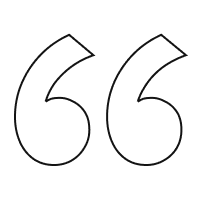Treatment For Shoulder Complaints/ Dysfunction, Disorder & Pain In Bury
About Shoulder Pain
The shoulder is the most movable joint in the body, but because of the range of motion it has, it is a relatively unstable joint and is therefore prone to injury. It is also the most frequently dislocated major joint in the body.
Shoulder pain can be felt locally or can be referred to other areas such as the arm or mid-back.
Shoulder Pain Causes
01
Organs
02
Heart
03
Liver
04
Neck (cervical spine)
05
Frozen Shoulder
06
Bursitis
07
Dislocation
08
Arthritis
09
Fractures
10
Tendonitis
Our Approach to Shoulder Pain
We commonly see a lot of people who complain of shoulder pain. We use a variety of techniques to address the underlying cause of the pain and to alleviate symptoms.
Firstly, we perform a thorough examination of the shoulder and surrounding areas to identify any areas of restricted movement or misalignment. Once we have identified the source of the problem and ascertained that it is neuro-musculoskeletal in nature, we then use adjustments and other techniques to help restore proper alignment and improve range of motion. We may also recommend exercises and stretches to help strengthen the shoulder and prevent future injury. We look at your body as a whole and our aim is always to get you truly well and help you to stay that way.
Adhesive capsulitis occurs more frequently in women than men, between the ages of 40 to 60, and is five times more common in diabetics.
The real cause of frozen shoulder is still unknown however, it can be attributed to misuse and injury, surgery in the arm or shoulder, mastectomy, myocardial infarction, and lack of use.
There are three stages to the disorder:
1. The first stage is “Freezing.” This is where the pain increases, and the shoulder loses its range of motion. This can last between one to eight months.
2. The second stage is the “Frozen stage.” This can last upwards of four months.
3. The third stage is the “Thawing stage.” This is where shoulder motion and strength slowly improve until function has almost returned to normal; this can take some time.
Bespoke Orthotics
First Time Visitors
Relief Care
Our first goal is to relieve your symptoms as quickly as possible. The severity of your condition will determine the length of this phase. Typically, the number of visits in this phase is frequent and can involve multiple visits to the centre each week.
Rehabilitative / strengthen and corrective phase
During this phase of care, the goal is to remove the root cause of your problem and to restore optimal function. This phase of care is also dependent upon the severity of the problem. The frequency of care can still be multiple visits per week, but unlikely to be as frequent as the relief phase of care.
Wellness Care
Once your body has had the chance to heal, we believe it is important to continue with care by having periodic checkups to help prevent future problems and to enable your body to continue to function at its most optimal level. Your lifestyle, health goals, and practitioner’s advice will determine the frequency of care that is right for you.
Frequently Asked Questions
This is always dependent upon the cause of your shoulder pain. If the pain is a result of a neuro-musculoskeletal problem, then we could help. We have had great success in the past with helping people alleviate their shoulder pain.
Shoulder pain can be a result of arthritis, bursitis, tendinitis, adhesive capsulitis (frozen shoulder), rotator cuff injuries, bony spurs, fractures, dislocations and referred pain from the neck. Organs such as the gallbladder, lungs, heart and inflammatory or systemic conditions can also cause shoulder pain.
If your shoulder pain is nothing untoward and neuromusculoskeletal in nature, simple stretches, frequent breaks from prolonged sitting, avoiding heavy lifting, using cryotherapy, and, in the short-term, rest, can all help to manage your symptoms. Do try to seek care as early as you can for a better long-term solution. Mobilisations or adjustments to the shoulder administered by a Chiropractor can be very effective when used in conjunction with stretches and exercises.
Testimonials
What our clients say
